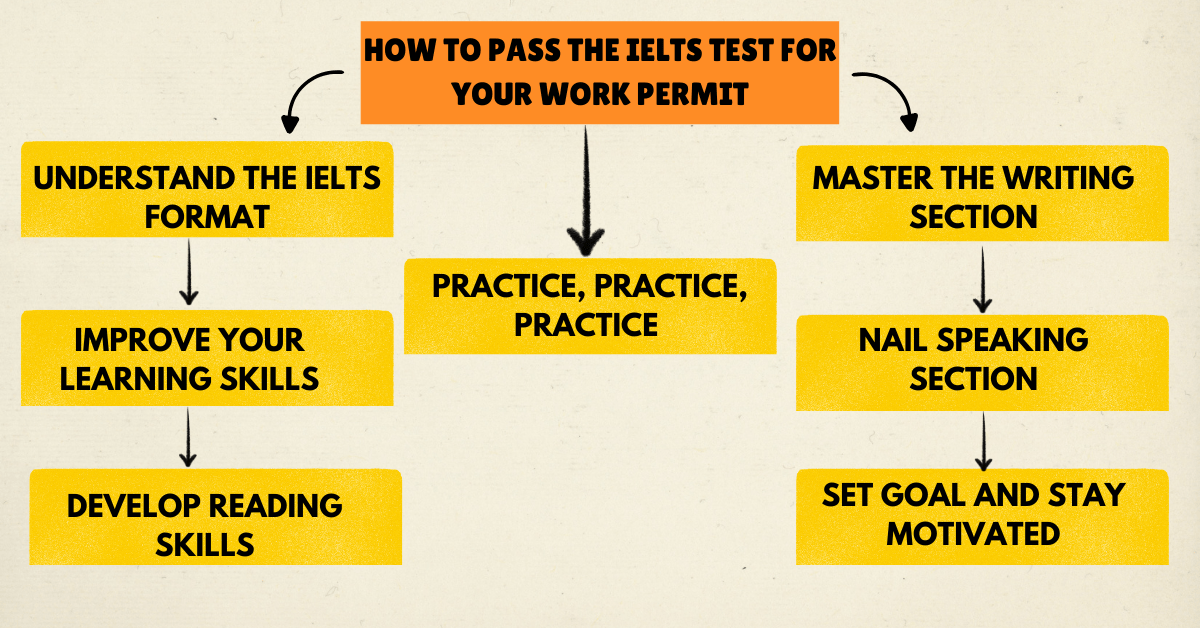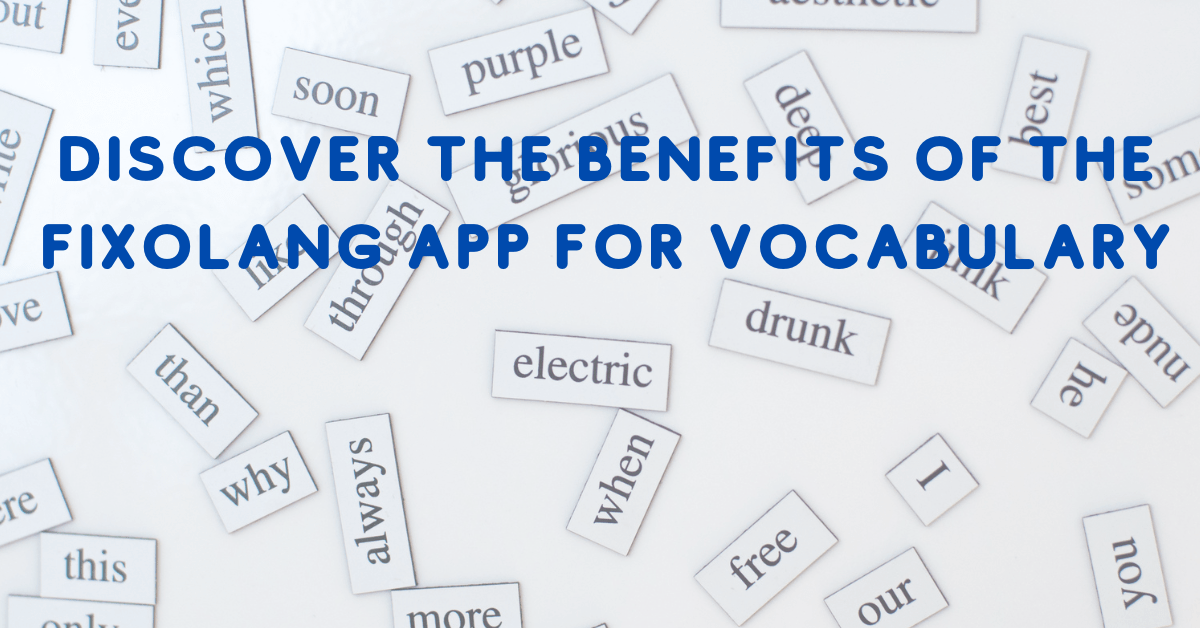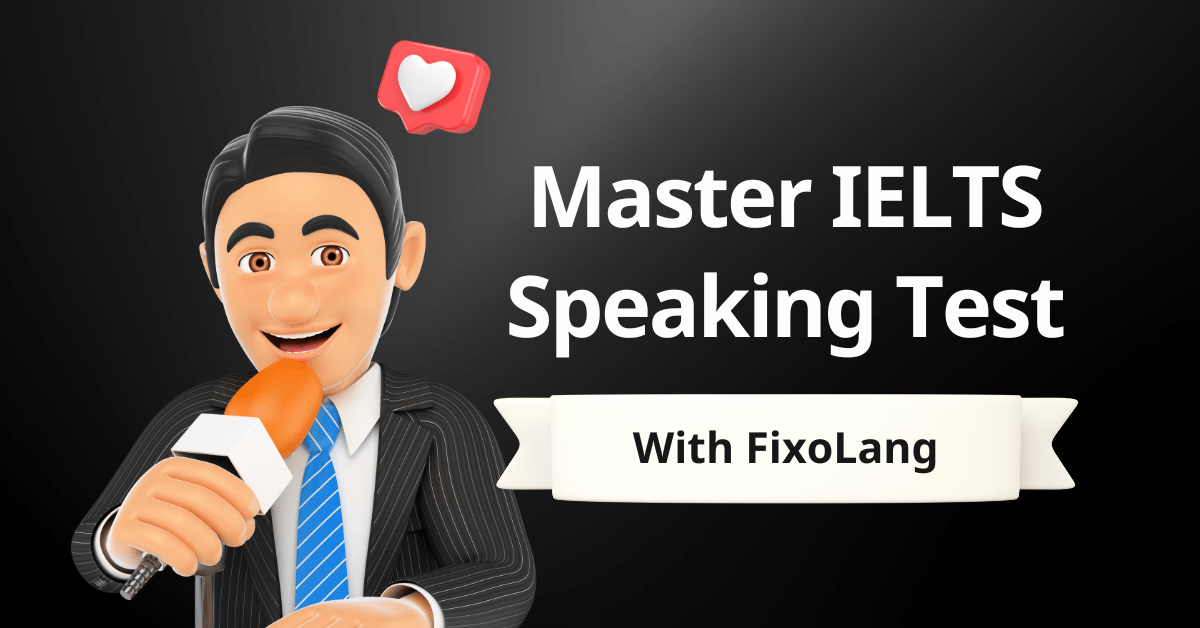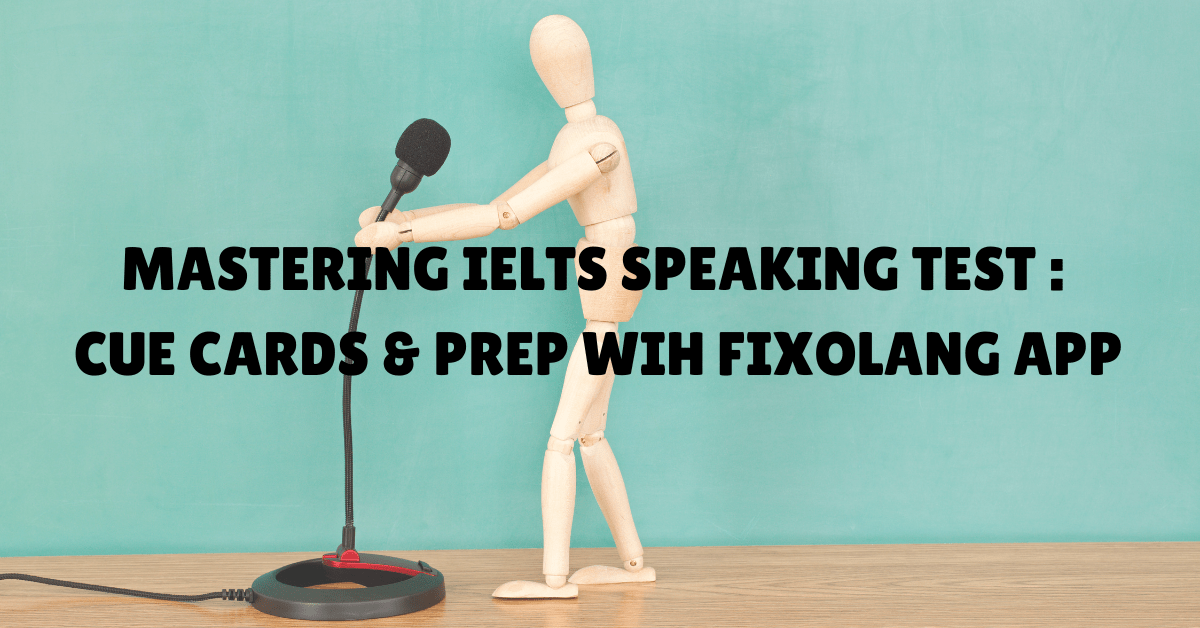Most learners chase “fancy words.” Band-7 candidates do something simpler and smarter: they tell tiny, clear stories. In IELTS Speaking, small stories unlock all four scoring areas at once—fluency & coherence, vocabulary, grammar, and pronunciation. When your answer has a beginning, middle, and end, you naturally speak longer, connect ideas, choose better words, vary structures, and keep a calm rhythm.
The S.P.E.A.K. Loop (your 60-second story)
One loop you can use in Part 1, Part 2, and Part 3:
Set the context → Point (your answer) → Evidence (tiny story) → Add nuance (“it depends…”) → Key takeaway (land cleanly)
Three sizes
-
Nano (10–12s): S → P → K (fast follow-ups in Part 1)
-
Standard (20–30s): S → P → E → K (great for Part 1)
-
Long turn (90–120s): S → P → E → A → K (the Part-2 sweet spot)
Why S.P.E.A.K. lifts your score
-
Fluency & Coherence: You stop listing and start connecting.
-
Lexical Resource: The story forces natural paraphrase and topic words.
-
Grammar Range & Accuracy: Stories invite mixed tenses and clause types.
-
Pronunciation: Clear steps = natural pauses, stress, and intonation.
Signposts to keep handy:
“To give you a quick picture… / The short answer is… / For instance… / That said… / So overall…”
Sample Answers (that actually sound human)
Part 1
Q: Do you enjoy cooking?
To give you a quick picture, I cook a few times a week. The short answer is yes—mostly simple meals. For instance, during lockdown I learned one-pot pasta to save time. That said, on busy days I just order in. So overall, I enjoy cooking, but convenience sometimes wins.
Why it works: Natural paraphrase (“simple meals,” “order in”), mixed tenses, clean close.
Q: Do you prefer e-books or paper books?
In brief, I lean toward e-books. For example, I highlight and search instantly, which saves time. That said, on weekends I still enjoy paper—especially non-fiction with visuals. So overall, e-books for weekdays, paper for slow Sundays.
Part 2 (Cue Card)
Cue: Describe a time you solved a problem.
To set the scene, last semester our slides crashed 10 minutes before a presentation. The short answer is we recovered by switching to a plain, text-only deck and doubling down on the story. For example, I suggested we outline three beats—challenge, approach, result—and speak without visuals. That said, we spoke a bit fast at first. In the end, the professor praised our clarity. Looking back, when your story is solid, slides are optional.
Timing map for Part 2:
-
0:00–0:20 → S + P
-
0:20–1:20 → E (2–3 vivid beats)
-
1:20–2:00 → A + K (what changed / what you learned)
Part 3 (Discussion)
Q: Should schools focus more on creativity than exams?
In brief, I’d tilt slightly toward creativity. For instance, projects push students to apply ideas and speak more, which deepens learning. That said, exams still provide standards and accountability. So overall, a hybrid—creative projects backed by fair assessments—makes the most sense.
Q: How will technology change education in the next decade?
To set the context, tech will make learning more personalized. For example, adaptive platforms already adjust difficulty in real time. That said, access and digital well-being are real concerns. So overall, tech can widen opportunity—if we pair it with teacher training and sensible screen-time norms.
Band 5 vs Band 7 (hear the difference)
Question: What do you do in your free time?
-
Band-5 feel: “I watch movies. I like music. Sometimes I go out.”
Issues: list-like, no development, flat delivery. -
Band-7 feel:
“To give you a quick picture, I unwind with films or a short run. For instance, weeknights are comedies; Sundays are documentaries. That said, if friends are free, I’d rather meet them outdoors. So overall, I balance quiet time with social plans.”
What changed: a story spine, contrast, paraphrases, tidy close—and you sound real, not rehearsed.
Vocabulary Upgrades (without sounding fake)
-
“I like” → “I gravitate toward / I tend to prefer”
-
“very important” → “pivotal / essential”
-
“problem” → “hiccup / setback” (pick what fits)
-
“a lot” → “a great deal / considerably”
-
“because” → “since / as / given that”
Rule: Upgrade one word per sentence—never all of them.
Grammar & Delivery: High-Yield Moves
Grammar to sprinkle in:
-
Past + Present Perfect: “I learned the habit and I’ve kept it since.”
-
If-clauses: “If time is tight, I skip details.” / “If I had more time, I would add a contrast.”
-
Relative clause: “A routine that helps me is shadowing.”
-
Cleft for emphasis: “What changed my score was structuring answers.”
Pronunciation habits:
-
Speak in thought groups (5–9 words).
-
Stress meaning words: “KEY takeaway,” “REAL issue.”
-
Use a 1-beat pause instead of fillers (um/like).
-
A light smile relaxes the jaw and clarifies sounds.
“Calm → clear” in 60 seconds (pre-answer reset)
-
Box breath (4-4-4-4) twice.
-
Jaw drop silently (“ah”) to relax.
-
Whisper your anchor: “To give you a quick picture…”
-
One idea per sentence—short beats > long monologues.
Diagnostic Checklist (after any practice)
-
Did I Set context in one clean line?
-
Did I state a clear Point early?
-
Did I add Evidence (a micro-story)?
-
Did I Add nuance (“That said… / On the other hand…”) once?
-
Did I Close cleanly (“So overall…”)?
Score yourself 0–2 on: Fluency, Coherence, Vocabulary, Grammar, Pronunciation. Aim for 8/10+ consistently.
A 7-Day Plan (15 minutes a day)
Day 1 — Loop Drills
5 Part-1 questions → S.P.E.A.K. in ~20s each. Record once. Cut lists, add one tiny example.
Day 2 — PPF for Part 2
One cue card → Past → Present → Future (90–120s). Add a reflection line.
Day 3 — Contrast Muscle
Every answer includes “That said…” + one precise limit. Listen for more natural tone.
Day 4 — Paraphrase Bank
Pick 10 topics (food, travel, work…). Write 3 synonyms each. Speak 60s per topic. You can check out this blog for more common topics for the IELTS Speaking Test.
Day 5 — Grammar Mix
One complex sentence per answer (relative clause / if-clause / cleft). Accuracy > complexity.
Day 6 — Pronunciation
Mark pauses and meaning words; re-record. Aim for steady pace, not speed.
Day 7 — Full Mock (11–14 min)
Do a complete test. Use the checklist. Target 8+/10 on your rubric. Save best attempt; revisit in 72 hours to hear progress.
Common Traps (that keep you at Band 6)
-
Memorized scripts that don’t answer the question.
-
Vocabulary stuffing that sacrifices clarity.
-
One-line answers with no development.
-
Flat delivery—no signposts, no contrast, no close.
Fix: Use S.P.E.A.K., give one micro-example, add one contrast, and land the takeaway.
How FixoLang Helps You Master IELTS Speaking
If structure is the engine, feedback is the fuel. FixoLang turns your practice into a tight feedback loop so you improve where it counts.
AI Speaking Partner
-
Realistic prompts for Parts 1–3 (with natural follow-ups), so you practice exactly what appears in the real test.
-
Instant notes on fluency, coherence, vocabulary, grammar, pronunciation—aligned to IELTS descriptors—so you know why a response works (or doesn’t).
Band-Style Scoring & Trends
-
Criterion-wise breakdown shows your strongest and weakest areas, so you fix the right thing next.
-
A score history and progress graph keep motivation high.
Cue-Card Long Turn (Part-2)
-
Built-in 1-minute prep + 2-minute timer mirrors test pressure.
-
Bullet-note capture nudges you to plan with PPF/STAR inside your S.P.E.A.K. loop (structure over memorization).
Stress & Pace Feedback
-
Visualize your pauses, speed, and stressed words to clean up delivery and reduce fillers.
-
One-tap re-record makes it easy to focus on a single improvement each attempt.
Topic Bank & Smart Review
-
Fresh cue cards and realistic follow-ups across common themes (work/study, travel, health, tech, environment).
-
Smart Review surfaces your weakest answers first, so every practice minute is targeted.
Quick start (3 steps):
-
Open FixoLang → IELTS Speaking → Full Mock
-
Record Part 1 → Part 2 → Part 3
-
Read criterion notes, fix one thing, and re-record just that part. Repeat tomorrow.
Download FixoLang App now:
-
App Store: https://apps.apple.com/in/app/fixolang-ielts-prep-app/id6448477499
-
Google Play: https://play.google.com/store/apps/details?id=ielts.engvarta.com&hl=en_IN
Learn with FixoLang (social):
-
YouTube: https://www.youtube.com/@FixoLang
-
Instagram: https://www.instagram.com/fixolang/
-
Facebook: https://www.facebook.com/fixolang/
Final Thought
In IELTS Speaking, coherence is kindness—to the examiner and to yourself. Build tiny stories with S.P.E.A.K., practice for 15 minutes a day, and let structure carry your vocabulary, grammar, and pronunciation to Band 7+. Pair that structure with FixoLang’s instant, criterion-wise feedback and you won’t just practice more—you’ll improve faster where it matters most.
Frequently Asked Questions (FAQ’s)
-
How do I improve coherence quickly?
Front-load context (“To give you a quick picture…”), state a clear point, add one-line evidence, and finish with “So overall…”. That spine alone lifts IELTS Speaking coherence.
-
How long should I speak in Part 2?
Aim close to 2 minutes. Budget time: ~20s for context + point, ~60s for a mini-story with 2–3 beats, ~30s for nuance and a final takeaway.
-
Is it okay to memorize answers?
Memorize structures and signposts, not full scripts. Off-topic memorized replies sound unnatural and can lower your score.
-
Are short answers bad?
Short and empty—yes. Short but developed—no. Use S.P.E.A.K. to add one line of context and one tiny example; then close cleanly.
-
Do I need a “native” accent to score 7+?
No. Any accent is fine if you’re clear and consistent. Focus on intelligibility, clean stress, and steady pace. Examiners score clarity, not accent type.






